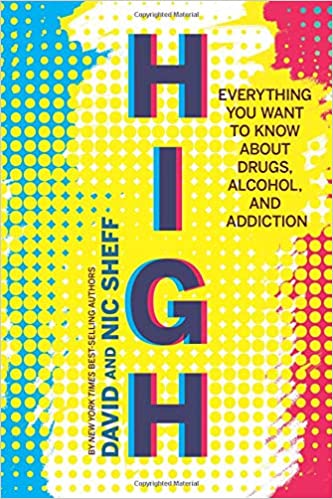
(Amazon Books image)
Returning from Abbotsford to Hedley last week, Linda and I decided the weather had warmed sufficiently to buy our first ice cream cones of the season. We pulled into the McDonald’s in Hope and walked toward the restaurant. A bearded man, about age 30 and wearing a black hoodie, was sitting on the front concrete walkway. He seemed to be hiding inside the hoodie, but we were conscious he was observing us with keen interest. As we drew nearer he said, “Would you buy me some fries?” Linda has a gentle heart and immediately said “yes.” He got up and followed us inside.
He requested a “Happy Meal” and while Linda was placing the order he reached out a hand to me and said, “I’m Derek.” It was the beginning of a disquieting interaction. When Linda handed him the Happy Meal, he went to a booth by a window, seemingly having forgotten about us.
Linda felt we should sit with him. “Can we join you?” I asked. He said “sure,” then turned partially toward the window and pushed three fries into his mouth. Without our prompting he began speaking, but it was a fragmented, incomprehensible monologue. Hoping to generate a conversation, I asked if he lived in Hope. “I stayed with my uncle last night,” he responded, momentarily turning to face us. “I’m walking to Abbotsford.” He again turned partially toward the window and we once more seemed to fade from his consciousness.
Taking a bite of the burger he turned toward us again and said, “I’m a demon. You are responsible for this.” He resumed his examination of the window, apparently assuming we knew what he meant.
Derek’s jumbled, mostly unintelligible monologue greatly puzzled me. When he turned to the window he seemed unaware of our presence across the table from him. In one of his more rational moments he said he had done meth, heroin, and alcohol. Except for his mangled conversation though, there was no indication he was intoxicated. Was he under the influence of drugs? Had he caused permanent damage to his mind with substance abuse?
I scoured my memory, searching for some explanation for the seeming mayhem in Derek’s mind. I recalled that extensive research indicates that in the teen years, the brain changes more rapidly than it ever will again. Drug use can negatively impact the brain at exactly the time when it is most vulnerable.
In High: Everything you want to know about Drugs, Alcohol and Addiction, David and Nic Sheff say, “drugs offer an alternative world.” Derek’s mind certainly seemed to flit between the real present, and some other state in which he was a lonely pilgrim. The Sheffs contend that “the brain on drugs is like a highway where all the automobiles are out of control, crashing into each other.”
We listened to Derek’s mutterings for about 20 minutes, comprehending only snatches when he turned to face us. During the lengthy intervals in which he receded into a mental fog, I sensed he had, at best, a tenuous connection to the world around him The Sheffs seemed to describe him when they wrote, “young adults who used drugs in the teen years may never learn to do the stuff we normally learn as teens to navigate life. To try and fail, and try again, to have friends and a job.”
The Sheffs further state, “long term alcohol abuse can permanently damage the hippocampus, which regulates many body processes, like heart rate, hunger and thirst, breathing and much more.” They disagree with society’s growing complacency concerning marijuana. “In adolescents marijuana may affect brain structure, cognitive functioning and memory,” they say. “High doses of meth can lead to cognitive deficits, mood disturbances, violent behaviour, confusion, paranoia, delusion, stroke and heart attack.”
After Derek had eaten the burger and fries, he was ready to move on. We shook hands and I wished him well. Watching him amble away, seemingly quite purposeless, I thought of those young people in Hedley who live mostly for alcohol, marijuana, meth, cocaine and other drugs. And I wondered why we are willing to let them go down the path that seems to have impaired Derek’s mind.
Substance abuse is destroying thousands of young lives in our country. Why are we not responding to it with the same determination, vigour and resources as we are to COVID 19? Surely we can offer more to our next generation.
.

A marvelous observation…
We are going to see a lost generation which is going to impact the world. Their children and on it goes. How horrible for the world. I know there is only one answer but unfortunately the Church has lost this opportunity to go out and do what they were ordered to do…They are too busy getting high as well.
Thanks for sharing your thoughts, Muriel. I very much agree. As a society, our values have slipped.
While I was working with young offenders, I sometimes wondered what would happen to these young people
when they became adults, and what would happen to their children. Surely we can do better.
Art